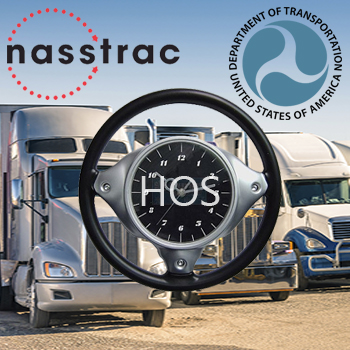While good in theory, shippers say, the result would be impracticable, expensive, difficult to enforce, and might end up doing more harm than good.
“Even if the rules were legally sound and well-designed (which they are not), Federal Motor Carrier Safety Administration (FMCSA) cannot credibly assert that its proposed rules can be implemented with no costs or other adverse impacts to shippers and intermediaries, or to the transportation system of which the trucking industry is the most important part,” the National Shippers Strategic Transportation Council (NASSTRAC) said in comments to the agency.
While saying it has “no sympathy” for shippers or intermediaries who try to pressure truckers into violating safety regulations, NASSTRAC said FMCSA’s proposal is “stunning overreach” and abuse of its regulatory power.
“In effect, FMCSA seeks to deputize virtually all American businesses … and individuals shipping personal property and household goods, as unofficial compliance personnel regulated by this agency,” NASSTRAC said its comments.
Here’s why FMCSA proposed the rules, and how they would theoretically work. The agency was afraid shippers might coerce trucking companies by threatening to withhold business unless the carriers were willing to bend hours of service rules in order to win the business.

While claiming its rule “does not affect industry productivity” or impose any additional costs, FMCSA’s proposal would nevertheless hit shippers and intermediaries with penalties of up to $11,000 per offense for shippers who do not “inquire about the driver’s time remaining” on his or her legal hours of service.
In theory at least, the rule appears to require that it is the duty of the shipper, consignee and intermediary to inquire that every driver, for every freight movement, would have to be queried by trucking companies’ customers as to whether the equipment is in good shape, whether drivers are in compliance with all alcohol and substance abuse rules, whether additional parts and accessories may be needed, among other details.
“Many shippers, receivers and intermediaries lack the expertise to just driver responses to many of these inquiries, and the idea that they will take no time and cost no money is unsupportable,” NASSTRAC told FMCSA.
John M. Cutler Jr., general counsel for NASSTRAC, said the rule was mandated by Congress as part of the MAP-21 federal highway legislation. While intended to protect drivers against coercion from shippers, FMCSA’s proposal is overly broad.
While nobody is defending shippers who pressure their carriers into violating any safety regulations, Cutler said, this rule requires shippers and receives to inquire about each driver and each shipment as their legal availability to make runs within HOS regulations as well as having to discuss the safety of driver’s equipment.
“Given how many shipments there are per day in this country, I’m not so sure that’s practical,” Cutler told Logistics Management. “If you order stuff from Amazon and UPS delivers it, there might be 100 shipments on that UPS truck. Is every recipient of every shipment supposed to run to do and ask the UPS driver, ‘Are your hours OK? Is your truck safe?’ To me, that just isn’t feasible.”
There also could be legal and financial implications for shippers. If a carrier were charged with safety violations in such a case, it is possible the trucking company might try to assign some blame to the shipper, receiver or intermediary who coerced the safety violations, Cutler said. The possibility of false claims of coercion cannot be ruled out either, he added.
Furthermore, cutler said, there doesn’t appear to be the need for these rules. FMCSA already has the authority to penalize shippers and others who coerce truckers into pressuring carriers and drivers into taking certain loads.
“Penalizing coercion resulting in violations better addresses the conduct Congress wanted to discourage,” NASSTRAC said in its comments to the agency.
According to the FMCSA, the Driver Coercion Rule is designed to adopt regulations that prohibit motor carriers, shippers, receivers, or transportation intermediaries from coercing drivers to operate commercial motor vehicles in violation of certain provisions of the Federal Motor Carrier Safety Regulations, including drivers’ hours-of-service (HOS) limits and the commercial drivers’ license regulations and associated drug and alcohol testing rules or the hazardous materials regulations.
FMCSA says the rule would prohibit anyone who operates a commercial motor vehicle in interstate commerce from coercing a driver to violate the commercial regulations. It says the rule includes procedures for drivers to report incidents of coercion to the FMCSA, which the agency would follow in response to allegations of coercion.
Bob Voltmann, president and CEO of the Transportation Intermediaries Association (TIA), calls it a “Catch-22 situation” and says the proposed rule “creates more questions than it answers.”
Stifel Nicolaus analyst John Larkin said the rule is designed to prevent brokers and shippers from pushing carriers to break the HOS rules and the speed limits. But he warned that it could hurt small carriers, reduce capacity, and exacerbate the driver shortage.
Although final rule is not yet established, FMCSA is expected to consider the industry blowback on the issue before it issues one likely by the end of the year.
Related: Hours-of-Service (HOS) Study Indicates Substantial Losses in Trucking Productivity

Article topics
Email Sign Up

















